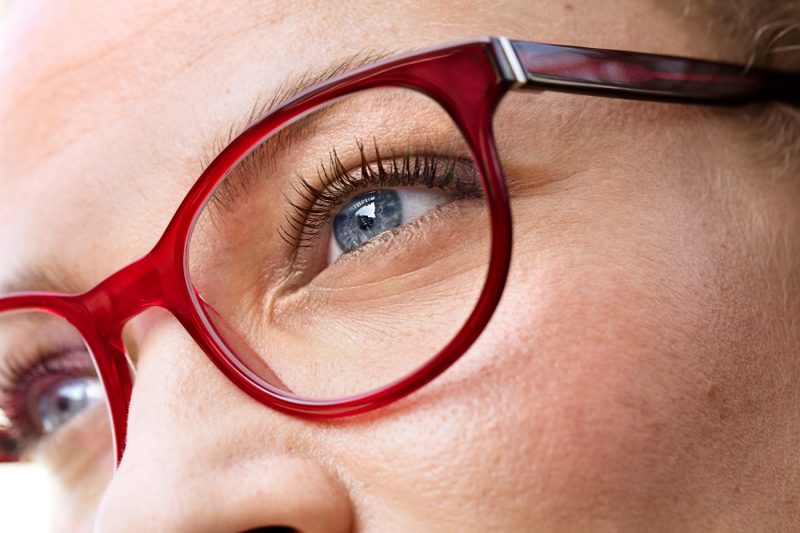Assuring your eyesight is one of the most significant things you can do to help Sustain your quality of life.
The preeminent causes of blindness and low vision are age-related diseases like macular degeneration, cataract, diabetic retinopathy, and glaucoma.
Here are we with some tips to assist you to fend off vision loss from these age-related eye problems.
Find Out If You Are At Higher Risk For Eye Diseases
Be familiar with your family’s health history. Do you or any of your family suffer from diabetes or have a history of high blood pressure? Are you over age 60? Any of these traits elevate your possibility for sight-threatening eye diseases.
Have Routine Physical Exams To Check For Diabetes And High Blood Pressure
If left not treated, these diseases can lead to eye problems. In specie, diabetes and high blood pressure can result in vision loss from diabetic retinopathy, macular degeneration, and eye strokes.
Seek Warning Signs Of Alteration In Your Vision
If you begin seeing any changes in your vision, visit your eye doctor promptly. Some problematic signs to look for are double vision, hazy vision and snag seeing in low light conditions.
Other signs and symptoms of possible serious eye problems which warrant instant attention consist of red eyes, frequent flashes of light, floaters, and eye pain and swelling.
Exercise Regularly
Studies recommend that regular work out, for instance, brisk walking can step down the risk of age-related macular degeneration by up to 70 percent.
Preserve Your Eyes From Harmful UV Light
When outdoors during daytime, always remember to wear sunglasses which protect your eyes from 100 percent of the sun’s harmful ultraviolet rays. This may aid cut down your risk of cataracts, pinguecula, and other eye problems.
Eat A Healthy And Balanced Diet
Research has found that antioxidants can probably decrease the risk of cataracts. These antioxidants are best picked up from eating a diet consisting of plentiful amounts of fruits and colorful or dark green vegetables. Studies also have discovered that eating fish rich in omega-3 fatty acids may minimize your risk of developing macular degeneration.
Also, prefer supplementing your diet with eye vitamins to make sure you are getting sufficient amounts of the nutrients you require to maintain your eyes healthy.
Have An Eye Exam Once A Year
A thorough an eye exam, consisting of dilating your pupils, can determine your chances for major eye diseases such as diabetic retinopathy, which has no early warning signs or symptoms.
An eye exam also can guarantee that your prescription for eyeglasses or contact lenses is up to date and that you are seeing as clearly and safely as possible.
Do not smoke
So many dangers of smoking have been well documented. When it comes to eye health, people who smoke are at higher risk of having age-related macular degeneration, cataracts, uveitis, and other eye problems.
Be Sure To Wear Safety Glasses
Always be sure to wear safety glasses when working with tools or participating in active sports to assist avoid eye injuries which potentially could lead to permanent vision loss.
It is true that following these tips is no guarantee of perfect vision throughout your lifetime. But keeping a healthy lifestyle and having routine eye exams will, of course, reduce your risk of developing a sight-stealing eye problem which otherwise might have been impeded.
our eyes are among your most crucial organs. Your eyes not only let you see shapes and depth and millions of colors but also aid to manage the light signals which maintain your body’s internal clock running properly.
Your eyes are also among the most liable parts of your body, and they require your care to keep and enhance your eyesight.
While you may be conscious that you should always wear protective glasses during activities, for instance, woodworking and landscaping, there are also other approaches to protect your eyes and maintain them healthy every day.
Preserve Your Eyes From The Sun
Alike all sources of energy, the sun offers critical life support, but can also lead to serious harm. Ultraviolet (or UV) radiation bring much of the danger posed by sunlight, burning your skin and eyes and leading to long-term harm when left unprotected.
The sun’s UV rays are a clear and present danger when you are at the beach on a sunny day, but are equally inimical on overcast days and on snow, which shows the light into your eyes.
To shield your eyes from the sun and UV damage:
- Wear quality sunglasses with UV protection outdoors
- Wear a hat or cap with a wide brim, and take breaks in the shade
- Never stare into the sun, especially with binoculars or during a solar eclipse
Protecting Against Eye Strain
On occasion, we pose a huge danger to our eyes. Stressed out eyes are vulnerable to short term and long-term eye and vision problems. To assist protect your eyesight and maintain healthy eyes, reduce the strain by:
- Taking breaks during computer work. Always try to take a 15-minute break away from your computer every two hours, and rest your eyes every twenty minutes by looking around the room.
- Giving yourself good lighting. Your eyes require enough light to read and write, work on the computer or watch TV. In low light or dark, your eyes have to work harder than usual, leading to strain.
- Blinking often to refresh and moisten your eyes.
- Getting the proper eyewear. If you wear glasses or contacts, always make sure your correction is still right for your eyes and for the type of work you do.
- Keeping good air quality. Maintain dry eyes at bay and enhance your eyesight by utilizing a humidifier, maintaining comfortable temperatures and avoiding smoke and other pollutants.
Be canny! Consult your eye doctor regularly and take care of your eyes to maintain them healthy.



